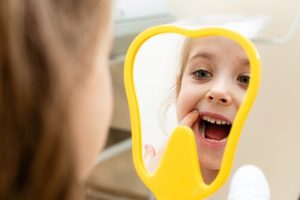We’ve all been there: You sit down for a meal, take a bite of your favourite dish, and suddenly feel a sharp pain in your tooth. Tooth pain after eating can be frustrating and, in some cases, downright debilitating. But why does it happen? What’s going on in your mouth that’s causing this discomfort? Let’s dive into the reasons behind tooth pain after eating, what might be causing it, and how you can treat it to return to enjoying your food with ease.
What Causes Tooth Pain After Eating?
Tooth pain after eating can stem from several underlying issues. If you’ve noticed that your teeth hurt during or after meals, it’s time to pay attention to what might be going on in your mouth. Here are some of the common causes:
- Sensitive Teeth:
- Tooth Decay: Dental caries or cavities are another common reason for tooth pain. As harmful bacteria break down sugars and food particles in your mouth, they produce acids that wear away your tooth enamel. Over time, this can result in cavities that can cause pain, particularly when eating.
- Gum Disease: Gum disease, or periodontal disease, affects the tissues that hold your teeth in place. If your gums are infected or inflamed, they can recede, exposing the tooth roots and causing pain during eating, particularly with tough foods like meat.
- Tooth Grinding: Grinding your teeth, also known as bruxism, can lead to worn-down teeth and gum recession. When this happens, the protective enamel is weakened, and the underlying tooth roots are exposed, leading to increased sensitivity and pain, especially when biting down on food.
Why Does Eating Meat Cause Tooth Pain?
You might have noticed that eating meat, in particular, can cause tooth pain. This could be because of a few different reasons:
- Food Stuck Between Teeth: Meat fibres can easily get stuck between your teeth, especially if your gums have receded or you have gaps between your teeth. When food gets lodged in these spaces, it can create pressure on the gums and teeth, causing discomfort or even sharp pain.
- Exposed Root: When gum recession occurs, the roots of your teeth may become uncovered. Unlike the tooth enamel, these roots lack protection, which makes them extremely sensitive to certain foods, such as meat. Since these exposed roots are located near nerves, chewing or biting can cause intense discomfort or sharp pain.
- Lingering Pain After Meals: If you find that the pain lingers long after you’ve finished eating, it could be a sign of something more serious, such as an infection or tooth decay. In some cases, sharp pain can indicate that a tooth is damaged or has developed a cavity that needs to be treated.
Tooth Pain from Gum Disease: A Serious Concern
If you suspect gum disease is causing tooth pain, seeing your dentist for proper dental treatment is crucial. Keeping your gums healthy through regular brushing and flossing is essential, but professional dental work may be needed to treat more advanced cases of gum disease.
Tooth Grinding: A Hidden Culprit Behind Tooth Pain
Teeth grinding, especially during sleep, can cause a host of dental problems, including tooth pain after eating. Grinding wears down the enamel, leaving teeth vulnerable to sensitivity and pain. Over time, grinding can cause severe damage to teeth and even lead to gum recession.
Using a mouth guard at night can shield your teeth from the impact of grinding. If your dentist believes that grinding is contributing to your discomfort, they might suggest a custom-fitted mouth guard to help prevent additional harm.
Could It Be a Cavity or Tooth Decay?
Tooth decay is another frequent cause of pain while eating. Cavities form when harmful bacteria break down the enamel, leading to holes in the tooth. When you eat, especially sugary or acidic foods, these cavities can cause sharp pain. In some cases, the pain may persist long after the meal.
If you suspect you have a cavity, visiting your dentist is crucial. Ignoring tooth decay can result in more pain, infection, and potentially the need for more invasive dental treatments like a root canal or even dental surgery.
When Should You See a Dentist?
If you’re experiencing persistent or severe pain after eating, it’s important to consult a dentist. Here are some signs that it’s time to book an appointment:
- Sharp Pain: A sudden sharp pain when biting or chewing is often a sign of a cavity, cracked tooth, or exposed root that needs treatment.
- Lingering Pain: If tooth pain persists long after you’ve finished eating, it could indicate a deeper issue, such as an infection or an abscess.
- Swelling or Gum Issues: Swelling, redness, or pain in the gums can be an indication of gum disease or infection, both needing prompt treatment.
Your dentist can detect the root cause of your tooth pain and recommend appropriate treatment options. These may range from simple solutions like fillings and fluoride treatments to more advanced options like root canals or dental surgery.
Preventing Tooth Pain After Eating
The good news is that you can take steps to reduce the risk of tooth pain after meals. Here are some simple tips to help keep your teeth and gums healthy:
- Regular Brushing and Flossing:
- Use a Mouth Guard: If you grind your teeth, wearing a mouth guard at night can protect your enamel and prevent tooth sensitivity.
- Be Careful with What You Eat: Avoid overly hard or sticky foods that can exacerbate tooth pain. Cut meat into smaller pieces to avoid getting food stuck between your teeth.
- Visit Your Dentist Regularly: Regular dental check-ups can catch any potential issues early, preventing more serious conditions from developing.
Treatment Options for Tooth Pain After Eating
If you’re already experiencing tooth pain after eating, several dental treatments can help:
- Fluoride Treatments: Strengthening the enamel with fluoride can help protect against sensitivity.
- Fillings or Crowns: For cavities or cracked teeth, fillings and crowns can restore the tooth’s structure and eliminate pain.
- Root Canal: In cases of severe decay or infection, a root canal might be necessary to remove the affected pulp tissue and relieve the pain.
- Gum Treatments: If gum disease is causing your pain, your dentist may recommend scaling, root planing, or other periodontal treatments to restore your gum health.
Final Thoughts: Don’t Ignore Tooth Pain
Tooth pain after eating can be a sign of various dental issues, from sensitivity and tooth decay to gum disease and teeth grinding. While some discomfort might be mild, it’s essential not to ignore persistent or severe pain, as this can be an indicator of a more serious condition that requires prompt attention.
Regular dental visits and practising proper oral hygiene habits are key to keeping your teeth and gums in optimal health, preventing tooth pain before it starts. And if you do experience discomfort after a meal, don’t hesitate to reach out to your dentist for advice and treatment options.
Your smile deserves the best care—so give it the attention it needs to stay comfortable, no matter what’s on your plate!
If you’re experiencing tooth pain after eating or have any other dental concerns, don’t hesitate to seek professional care. Southport Park Family Dental is here to assist you. Our esteemed team is ready to offer expert advice and personalised treatment options. Call us today at 07 5655 7688.
References:
Cleveland Clinic. (n.d.). Toothache: Causes, symptoms, and treatment. Cleveland Clinic. https://my.clevelandclinic.org/health/diseases/10957-toothache
Medical News Today. (n.d.). What causes a toothache? Medical News Today. https://www.medicalnewstoday.com/articles/142780
Mayo Clinic. (n.d.). Cavities/tooth decay: Symptoms and causes. Mayo Clinic. https://www.mayoclinic.org/diseases-conditions/cavities/symptoms-causes/syc-20352892








